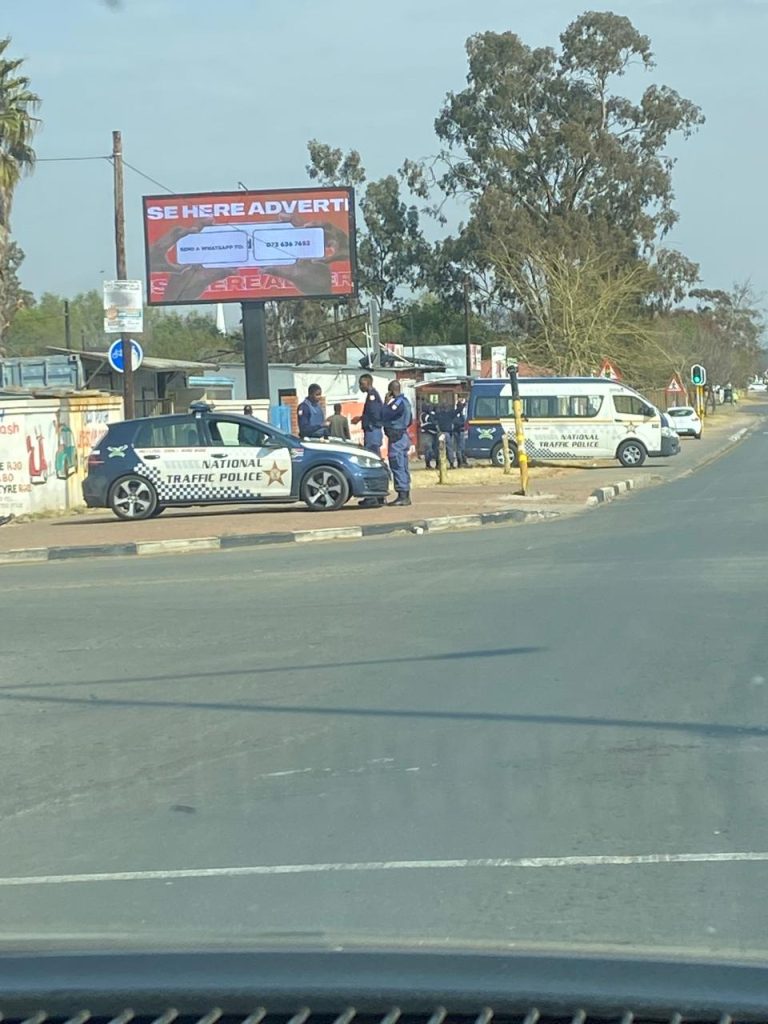Maponya Mall in Soweto has reopened following a day of unrest linked to violence between local taxi operators and e-hailing drivers. Law enforcement agencies have established a formidable presence around the shopping centre as tensions persist in the surrounding Pimville area, where angry residents have taken to the streets in protest.The unrest was ignited by the tragic death of 27-year-old Siyanda Mthokozisi Mvelase, who was shot and burned inside his car on Wednesday night.
Having moved to Gauteng from KwaZulu-Natal just two weeks prior, Mvelase had entered the e-hailing business only days before his untimely death. His family is mourning the loss of a young man whose aspirations were cut short far too soon.In response to the aftermath of Mvelase’s murder, residents have rallied against local taxi operators, accusing them of targeting e-hailing drivers.
Following the incident, Gauteng’s Roads and Transport MEC Kedibone Diale Tlabela convened a meeting at Maponya Mall between taxi associations and representatives of e-hailing drivers, aiming to quell the unrest. An agreement was reportedly reached, allowing both sectors to coexist without impediment. However, the residents vehemently rejected this arrangement, demanding that the mall remain closed for a week in honour of Mvelase and insisting that taxis should not operate within the mall premises.
“This deal is being imposed on us and does not address our demands,” stated community activist Daniel Smith. “We reject it. We are not going to be bullied by people who carry guns.”
The residents disrupted the feedback session as they learned of the agreement to reopen the mall, voicing their anger over the perceived disregard for their grievances.Diale Tlabela faced considerable challenges in assuaging the community’s concerns. She warned that a prolonged closure of the mall could have dire repercussions for numerous employees and local businesses. It became evident that the negotiations had been undermined by a lack of cohesive leadership among e-hailing drivers, with Diale Tlabela admitting that the agreement brokered in earlier discussions was being challenged by the very drivers it was meant to assist.The drivers themselves expressed frustrations at the lack of governmental oversight and support, highlighting their vulnerability to violence not just from taxi operators, but also from clients and even the e-hailing companies they work for.
“A life of an Uber driver is the most vulnerable,” lamented one driver from Pretoria, who had come to support colleagues in Soweto.
“We are often attacked by taxi drivers, mistreated by clients, and we struggle with issues like hijackings.”
The drivers called for any agreements made with taxi associations to be applicable across the broader sector, ensuring protection for all e-hailing drivers operating in various locations. As of Thursday night, law enforcement was on high alert, with ongoing threats from residents eager to prevent Maponya Mall from operating the following morning. Tensions between the community, e-hailing drivers, and taxi operators continue to simmer, raising critical questions about safety, regulation, and the need for effective dialogue among all parties involved



